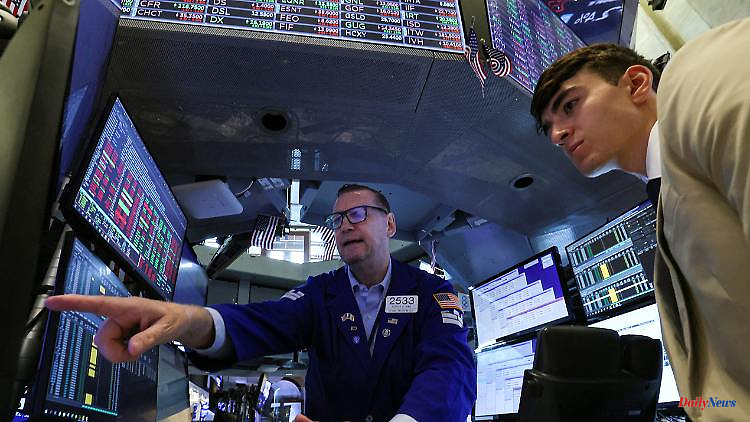Wall Street's major indices continue to plummet. Mounting signs of a recession are unsettling buyers ahead of inflation data. However, there is a small ray of hope.
Investors are shying away from larger exposures to Wall Street for fear of a setback for the global economy. The US standard value index Dow Jones fell by 0.6 percent to 30,981 points on Tuesday. The broad S
"When there's a lot of data coming out like inflation figures and company balance sheets, it's not uncommon for investors to be risk averse," said Art Hogan, chief investment strategist at financial services firm B. Riley. One ray of hope, however, is that earnings expectations for the second half of the year have remained stable. "That allays some concerns that the economy is slipping into recession."
However, the resurgence of the coronavirus pandemic in China caused stockbrokers a headache. In the spring, restrictions on public life there had affected the global economy. "After the number of new infections in the economic metropolis of Shanghai has increased significantly in recent days, new lockdown measures are feared there," said Commerzbank analyst Carsten Fritsch. Copper then fell by 2.1 percent to $7,622 per ton and US crude oil WTI by 7.3 percent to $96.36 per barrel (159 liters).
On the other hand, things went up for American Airlines, Delta and United, whose shares rose by up to eleven percent. Airlines benefit from falling oil prices because their biggest expense is fuel. Against this background, some investors sought their salvation in "safe havens" such as government bonds. As a result, the yield on ten-year US bonds fell to 2.967 percent. This is a clear sign that the looming recession has replaced interest rate hikes as the biggest risk factor, said portfolio manager Thomas Altmann from investment advisor QC Partners.
At the same time, Canoo caused a sensation with a record price jump of 111 percent at times to five dollars. The electric truck provider is selling 4,500 vehicles to retailer Walmart with an option to supply an additional 10,000 units. Financial details were not given. However, this order was expected, analyst Craig Irwin of the investment bank Roth interjected. Nothing changes in the result forecasts. The stock ultimately closed at $3.62.
Gap, on the other hand, went down. Stocks fell 4.8 percent after the fashion company warned of falling sales and margins. In addition, boss Sonia Syngal resigned with immediate effect. "The majority of Gap's problems appear self-inflicted and revolve around the 'Old Navy' brand," said analysts at Bank Wells Fargo. "We cannot recommend a stock that is struggling with company-specific challenges in addition to growing economic pressure." They downgraded the stock to equal weight from overweight and cut the price target to $10 from $16.












